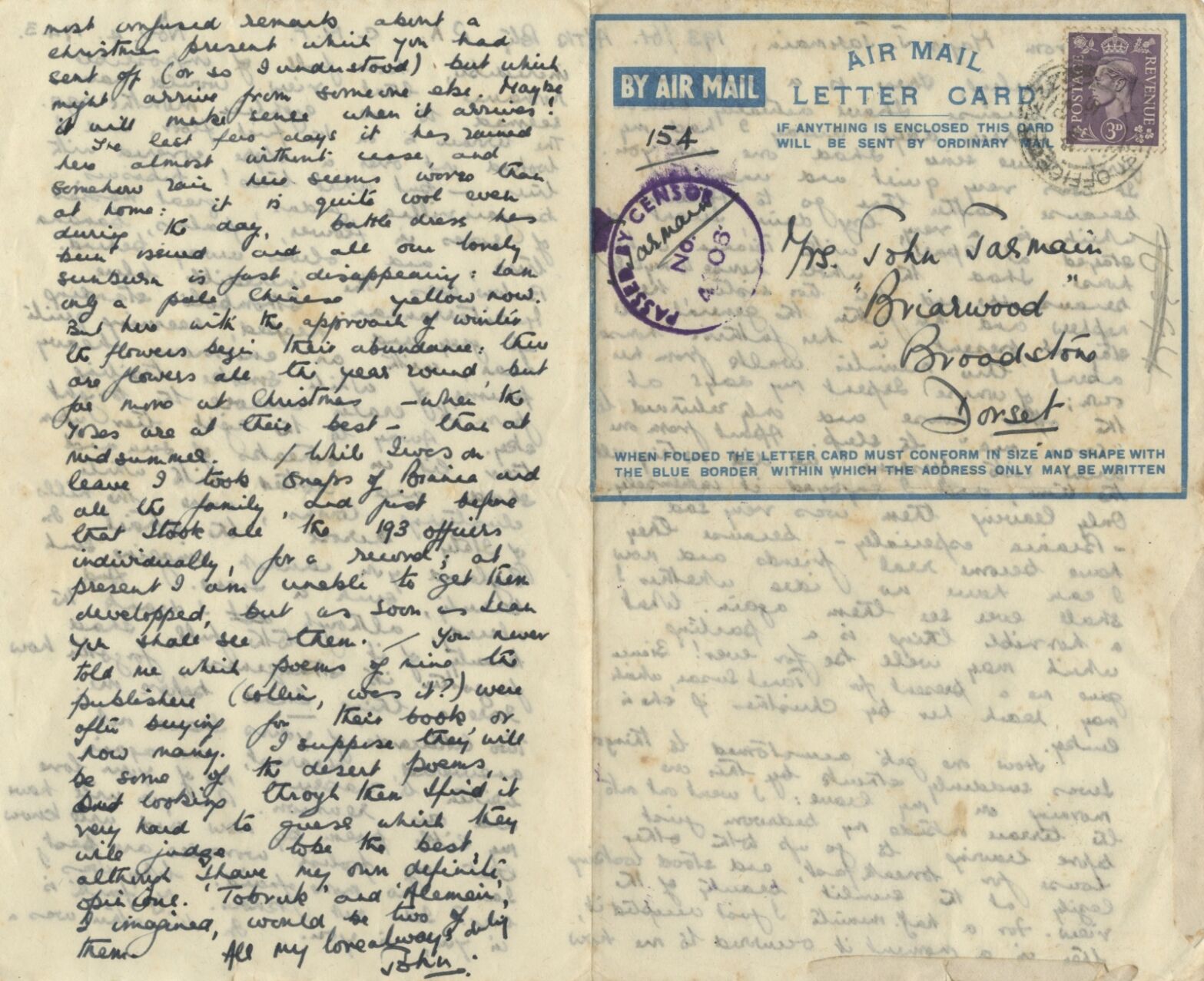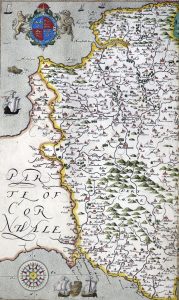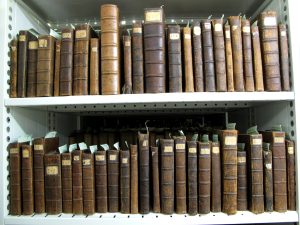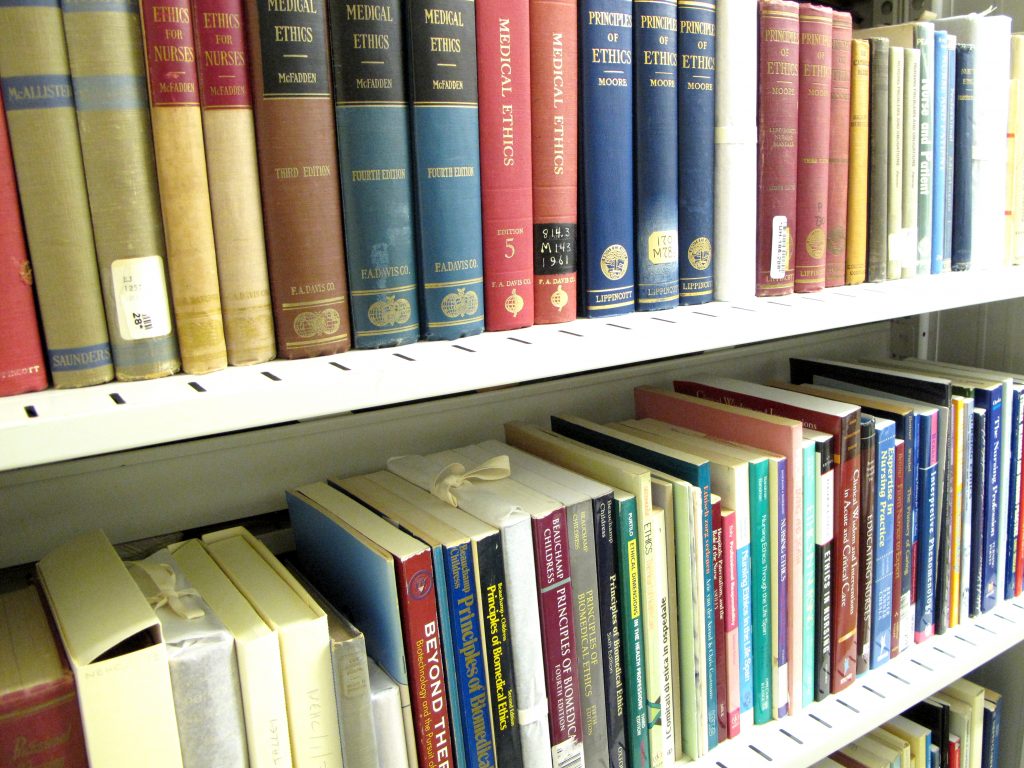We were delighted to be joined last week by Year 10 student Sami for a week of work experience in Special Collections. Below Sami shares some of his impressions and reflections on the experience. We would like to take this opportunity to thank Sami for his excellent work and wish him every success for the future.
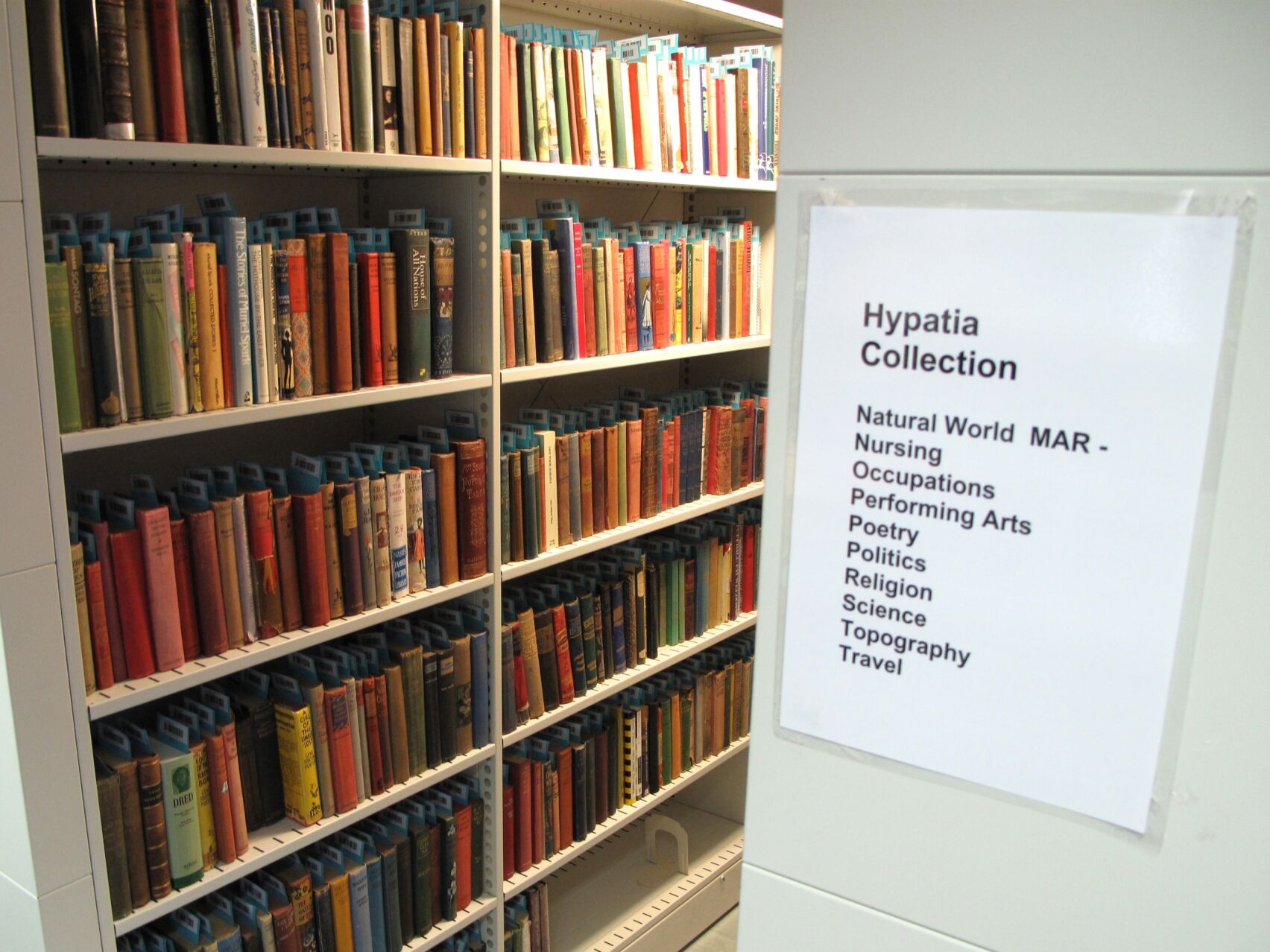
On Monday, the first day of my Year 10 Work Experience placement here in the University of Exeter’s Special Collections, I was greeted by my supervisor for the week and one of the archivists, Annie. She took me on a brief tour of the old library before showing me the office, where I would be doing the main activities for the week. Annie then introduced me to the very friendly Special Collections staff where I immediately knew that this would be a very welcoming and calm environment. I was then given a timetable and Annie explained the different activities that I would be doing throughout the week. After getting know what I would be doing during my time here, Annie took me on a basic tour of the campus and showed me where the cafes and other stores are located as well as areas where you can sit down and have lunch. I then had a fifteen minute break before Annie explained to me what archives and collections actually are, and how to handle them in a way so that they are not damaged. This was the first hands-on training I had received and I found it to be very interesting and informative. After my lunch break, I had a chat with Annie about her role here at Special Collections and what she does and I had a chance to ask her some questions about it. After having a chat with Annie, she introduced me to the main tasks that I would be working on, stocktaking the Hypatia Collection and repackaging architectural plans from the University Archive. I did these tasks until 3:30pm before having a chat with Caroline, the Head of Heritage Collections about her role to finish off the day.
On Tuesday, I started off the day by having a chat with Hollie, an Archivist, about her role and how/why she decided to become an Archivist which was quite nice to talk about. This was then followed by some repackaging and stocktaking until 11:30pm. For the next hour until my lunch break, I was given a tour of the Forum Library and the forum which I found to be very interesting and one of my favourite parts of the week as the Library and the Forum have some amazing features which make them brilliant for students who want a nice place to study at and fascinated me. After lunch break, I had a chat with Sarah-Jayne, one of the Special Collections Team Leaders, and she gave me a fun task of reshelving and retrieving items in the strongroom which was slightly challenging! I then did some stocktaking and repackaging until the end of the day.
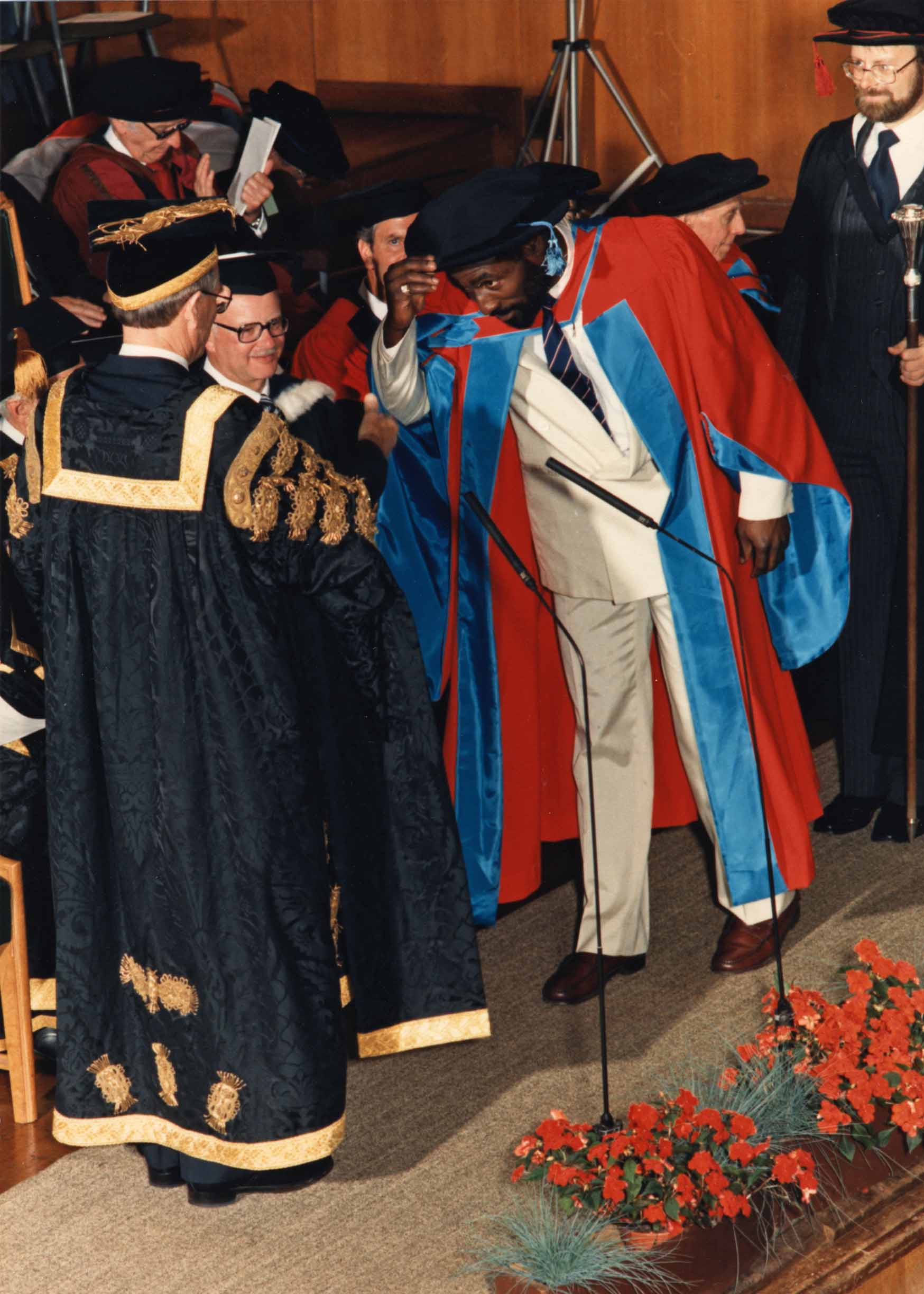
On Wednesday, from 10am until around 12pm, I prepared a social media post for “Throwback Thursday”. The post that I created used a photograph from the University Archive of Antiguan Cricketer Viv Richards receiving his honorary degree from the University of Exeter in 1986. I found this activity very enjoyable as I am familiar with posting on social media. After creating the social media post, I had a short break before my lunch break. Once my lunch break had finished, I did some repackaging and stocktaking for around thirty minutes before the Digital Humanities Lab tour which was one of my highlights of the week as I got to have a small glow-in-the-dark ghost 3D printed! It was amazing to see the all of the cool, advanced technology they have in the Digital Humanities Lab which made it enjoyable. As soon as the tour had finished, my working day had to come to an end.
On Thursday, for the first twenty minutes, I posted the Throwback Thursday on the Library’s Instagram page and it was really nice to see how well it was received and liked by multiple people. After that, I had a nice chat with Jamie, the archivist for the Middle East Collections, about his role and the DAME (Digital Archive of the Middle East) project which he works on. This was followed by a marketing meeting between the Library and Special Collections which I found to be quite informative as it was a first time experience for me and gave me an insight on how staff prepare the university for the coming year and how to make it the best it can be for new and returning students. After my lunch break, I had a tour of the Bill Douglas Cinema Museum with Chris, a Museum Assistant, which I found extremely interesting as I love history and film and the tour combined both of those together. After my tour of the Bill Douglas Cinema Museum, I had a chat with Angela, one of the Special Collections Team Leaders, about her role and how she keeps the temperature and humidity in the strongrooms at a level where the archives are least harmed before finishing off the day.
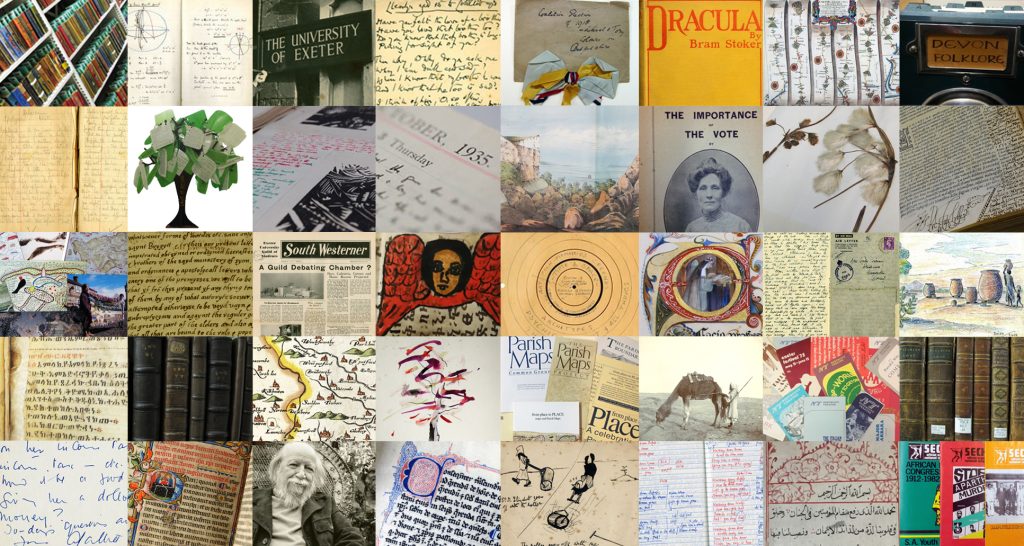
Finally, on Friday, I did some stocktaking and repackaging before having a chat with Aino, one of the Special Collections Assistants, about how she frequently needs to check that the strongrooms are free of insects which may damage the archives and the insect traps which are put in place. It was then lunch break, and after lunch, Jamie showed me how he digitises books and puts them onto the DAME website to make them easily accessible for people all over the world and in particular, students. This was really nice as he even let me help him with the process!
Overall, my time here at Special Collections was a very memorable one and I would like to recommend doing your work experience here as it is a very fun, interesting and enjoyable.
